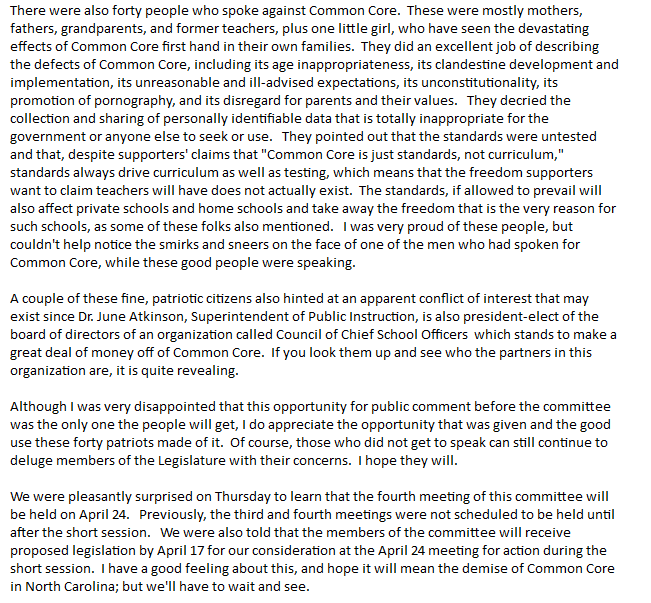Yesterday Breitbart posted an article about a study released Monday by the Boston-based Pioneer Institute. The study shows the complete failure of the Common Core academic standards to educate American children.
The article reports:
A study released Monday by the Boston-based Pioneer Institute reveals a historic drop in national reading and math scores among U.S. students since the adoption of the Common Core Curriculum Standards a decade ago.
“Nearly a decade after states adopted Common Core, the empirical evidence makes it clear that these national standards have yielded underwhelming results for students,” said Pioneer executive director Jim Stergios in a statement. “The proponents of this expensive, legally questionable policy initiative have much to answer for.”
The study, titled “The Common Core Debacle” and authored by education policy researcher Theodor Rebarber, asserts the “shocking trends” in American student performance in critical math and reading skills since the creation of the U.S. Education Department 40 years ago recommends reevaluation of federal involvement in education.
Performance in reading and math since the adoption of Common Core has especially declined in the nation’s lowest-achieving students – many of whom come from low-income families and failing public schools – widening the achievement gap and creating further inequality.
Supporters of Common Core, however, touted the Obama-era federally incentivized standards would be “rigorous” and also “level the playing field.” The Common Core State Standards Initiative boasted that the standards are “important” because:
[h]igh standards that are consistent across states provide teachers, parents, and students with a set of clear expectations to ensure that all students have the skills and knowledge necessary to succeed in college, career, and life upon graduation from high school, regardless of where they live. … The standards promote equity by ensuring all students are well prepared to collaborate and compete with their peers in the United States and abroad.
Rebarber observed, however, that while national fourth- and eighth-grade reading scores were rising at about half a point each year from 2003 to 2013, since that time, reading scores have dropped.
One of the unintended consequences of Common Core is that many parents are getting involved in their children’s education after being alarmed at what they are being taught and what they are not being taught.
The article notes:
“Several of us allied with Pioneer Institute have been pointing out, ever since it was introduced, the deeply flawed educational assumptions that permeate the Common Core and the many ways in which it is at odds with curriculum standards in top-achieving countries,” Rebarber said.
In the wake of the Common Core “debacle,” a national organization of parents has risen and is calling for an end to federal involvement in education and a return to policy-making at the local level.
United States Parents Involved in Education (USPIE) has produced Truth and Lies in American Education, a film focused on what the coalition of parents says is “the scheme behind the workforce development model of education and liberal indoctrination of children in government schools”
…“The sustained decline we’re now seeing, especially among our most vulnerable students, simply cannot be allowed to continue,” Rebarber also said.
“It’s time for federal law to change to allow states as well as local school districts to try a broader range of approaches to reform,” he added. “With a more bottom-up approach, more school systems will have the opportunity to choose curricula consistent with our international competitors and many decades of research on effective classroom teaching.”
It’s time for parents to take back their children’s education. Some of the states that claim to have removed Common Core have simply renamed it. Teach your children phonics, and teach them to ‘carry the one.’







